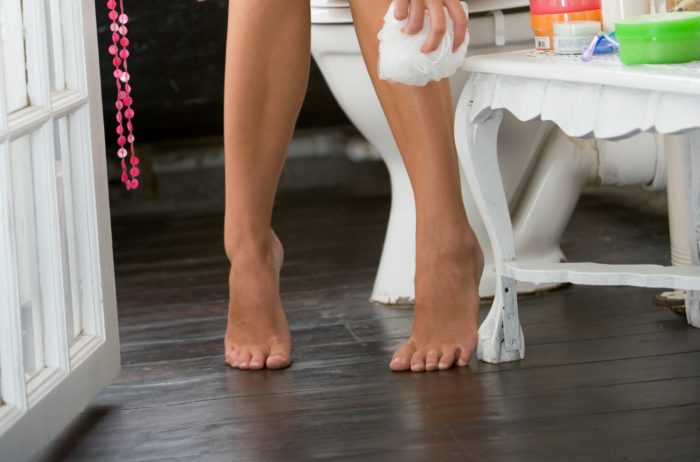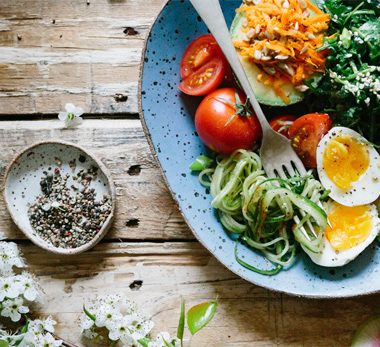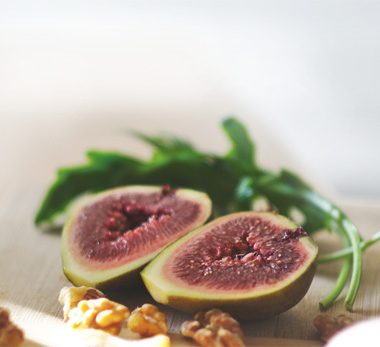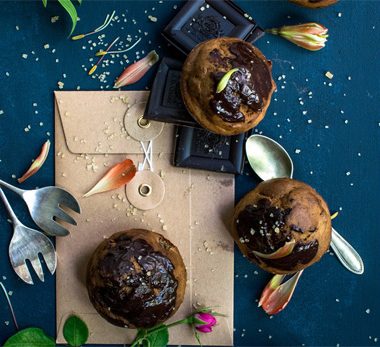Why We Get UTI Infections & Natural Solutions to Resolve Them for Good

Bacteria are the oldest (and wisest) living organisms on earth. Of all our body cells, more than 10 trillion are bacterial cells, living in a symbiotic relationship with us. In fact, we are more bacteria than we are human. Our bacteria are essential to keeping us healthy and alive. They cover us in an invisible body of armor that protect us from environmental assaults but they also play other key roles like functioning as part as of our immune system, digesting our food, and making certain vitamins, just to name a few.
But what about the “not so good bacteria” that cause illness. Urinary tract infections (UTIs) are some of the most frequent and frustrating bacterial infections seen clinically in women, but they can occur in anyone, including young children. The most common treatment for UTIs is antibiotics, and therefore bacteria have become antibiotic-resistant and recurrent infections are very common and concerning.
It is important to know that a urinary tract infection is caused by organisms that are too small to be seen without a microscope, including fungi, viruses and bacteria. Despite our body’s built-in defenses, certain bacteria have the ability to attach themselves to the lining of the urinary tract and inhabit the urethra, bladder and kidneys. The majority of UTI cases are caused by E. coli bacterium that can live in the bowel and vaginal cavities, around the urethral opening, and in the urinary tract. Other pathogens that can cause UTIs include Proteus mirabilis, Klebsiella pneumonia, Staphylococcus saprophyticus, Staphylococcus epidermidis and group B streptococcus infections.
The most common symptoms of a UTI include:
- pain when urinating
- frequent urge to urinate, but only passing small amounts
- muscle aches or abdominal pain
- feeling tired and weak
- urine that appears cloudy
- urine that appears red or bright pink (a sign of blood in the urine)
- strong-smelling urine
- pelvic pain in women
Most UTIs are uncomplicated and clear up within two to three days of treatment. More serious causes that are sometimes seen in individuals with suppressed immune systems and won’t be resolved for several weeks. Recurrent UTIs are mainly caused by reinfection by the same pathogen. With each UTI, the risk that you will continue having recurring infections increases.
To reduce the risk of developing recurrent urinary tract infections it is important to consider supportive remedies that help your body eliminate bacteria completely without damaging your microbial partners. Some of the most effective remedies for UTI include nutrition and lifestyle practices like drinking plenty of water, keeping your skin clean and dry, probiotics, certain whole foods, vitamin C, and herbs.
There are precautions you can take and ways to (1) reduce and prevent the development of a UTI; (2) protect from the reoccurrence of subsequent infections after antibiotics; (3) stop an active UTI in its tracks.
Prevention: How to reduce chances of developing of an UTI
- Stay hydrated. According 2018 study in JAMA, women who added 1.5 liters of water each day to their regular intake of fluids were less likely to get another UTI then women who drank less than that amount.
- Don’t wait when the “urge to go” arises. Urinating often and when the urge arises ensures that bacteria isn’t growing in urine that stays in the bladder. This is common for kids who tend to wait too long for fear they are going to miss out on the fun. Studies have found that holding urine for a long time allows bacteria to multiply within the urinary tract, resulting in a UTI. It’s also important for adults to urinate soon after sexual intercourse in order to flush out bacteria that may have entered the urethra from their partner.
- Probiotics. Probiotics, including fermented foods, help support the human body’s normal flora that serve as a line of defense. Eating fermented foods also helps restore the body’s natural flora and recolonize the bladder with helpful bacteria. Fermented foods include kefir, kimchi, probiotic yogurt, sauerkraut and kombucha.
Protection: Reduce the reoccurrence of subsequent infections after antibiotics
- Probiotics. One effective solution to protect against the recurrence of UTI following antibiotics is probiotics because the development of bacterial resistance is so common. Research shows that our commensal (i.e. “beneficial”) bacteria is crucial for preventing the overgrowth of microorganisms that lead to repeat infections. The use of antibiotics changes and reduces our beneficial bacterial flora making us vulnerable to pathogenic bacteria that can overgrow in these moist internal environments. As discussed under prevention, probiotics help support the human body’s natural flora that serve as a line of defense. Eating fermented foods also helps restore and recolonize our body with beneficial bacteria. Include fermented foods like kefir, kimchi, probiotic yogurt, sauerkraut and kombucha. For probiotics, studies show that at these one billion colony-forming units of Lactobacillus rhamnosus and Lactobacillus reuteri, taken twice a day, was effective.
{Note: Please order your therapeutic-grade probiotics under the care of your health care or nutrition practitioner.}
- Cranberry Extract. Although cranberry juice is commonly recommended as a natural solution for UTIs, there is mixed evidence that it is effective as a preventative strategy for recurrent infection. There is however some evidence that cranberries and cranberry extract are effective by inhibiting the growth and colonization of E. coli, which is the most common bacteria found in UTIs. Cranberry extract can be taken in capsules or in a tincture form.
Take an supportive role: Stop an active UTI in its tracks
In addition to the suggestions above, consider the following remedies for an acute infection.
- Garlic. Allicin, one of the active compounds found in freshly crushed raw garlic, has a variety of antimicrobial activities. In its pure form, allicin has been found to exhibit antibacterial activity against a wide range of bacteria, including multi-drug resistant strains of E. coli.
- D-Mannose. D-mannose is a sugar that disrupts the adherence of bacteria to the urinary tract wall. It can prevent certain types of bacteria that cause UTIs from sticking to the walls of the urinary tract. In studies, D-mannose powder has proven to be significantly effective in reducing the risk of recurrent UTis as well.
- Vitamin C. Vitamin C makes urine more acidic, inhibits the growth of E. coli and enhances immune function. Researchers found that 100 milligrams of vitamin C for a three-month period was able to reduce urinary infections during pregnancy.
- Steamed asparagus. At the early onset of a UTI, eat several stalks of steamed asparagus. You can drink the water that you steamed the asparagus in as well. Asparagus increases urinary volume and may help to flush bacteria out of the urinary tract.
- Uva ursi. Uvi Ursi works by killing bacteria in the bladder and urinary tract. An extract of uva ursi is used in Europe and in traditional herbal medicine in North America, as a treatment for UTI. This herb is approved in Germany for treatment of bladder infections. The active constituent in uva ursi is arbutin. In the alkaline environment of the urine, arbutin is converted into another chemical, called hydroquinone, which kills bacteria. 3–5 ml of the tincture, three times per day is generally best. Otherwise, 250 mg of arbutin in herbal extract capsules or tablets three times per day can be used. Uva ursi should be used under the guidance of your healthcare practitioner or herbalist.
- Natural compounds. Use cautiously. Essential oils are natural compounds found in the seeds, bark, stems, roots, flowers, and other plants. In addition to their distinctive smells, essential oils provide plants with protection against predators and disease.
Here are three essential oils suggestions for their antibacterial properties.
- Clove Oil. Research shows that clove oil has antimicrobial, antifungal and antiviral activity, in addition to its anti-inflammatory, pain-relieving and wound healing properties. Clove can be taken internally for up to two weeks, but you should do it under the care of a healthcare practitioner or nutritionist.
- Myrrh Oil. Myrrh oil also has antibacterial and antifungal, as well as antiparasitic properties. Historically, it’s been used to treat wounds and prevent infections. It can be diluted with a carrier oil and applied topically as a warm or cool compress, or rubbed into the skin. Use caution when using myrrh internally; make sure to use a pure, therapeutic–grade oil and do it under the care of your health care practitioner.
- Oregano Oil. Researchers have found oregano to successfully inhibit the growth of E. coli, the bacteria most commonly seen in UTIs. Many researchers believe that oregano essential oil can be used as an alternative antibacterial remedy for enhancing the healing process in bacterial infections and as an effective means for the prevention of antibiotic-resistant strain development because oregano doesn’t cause antibiotic resistance and it has no harmful side effects. Oregano oil must be diluted with a carrier oil. It can be taken internally for short period (not more than two weeks), but you should always do it under the care of a healthcare practitioner or nutritionist.
Foods to avoid
Keep in mind that once a UTI is active, you may want to temporarily avoid certain dietary triggers like caffeine, alcohol and sugar. As always, I recommend avoiding foods treated with glyphosate (a registered antibiotic and the active ingredient found in Roundup ®) as it has been shown to alter our delicate microbiome and increase our vulnerability to bacterial infections.
Research
Foxman B, Buxton M. Alternative Approaches to Conventional Treatment of Acute Uncomplicated Urinary Tract Infection in Women. Current infectious disease reports. 2013;15(2):124-129. doi:10.1007/s11908-013-0317-5.
Al-Badr A, Al-Shaikh G. Recurrent Urinary Tract Infections Management in Women: A review. Sultan Qaboos University Medical Journal. 2013;13(3):359-367.
Hooton TM, Vecchio M, Iroz A, et al. Effect of Increased Daily Water Intake in Premenopausal Women With Recurrent Urinary Tract Infections: A Randomized Clinical Trial. JAMA Intern Med. 2018;178(11):1509–1515. doi:10.1001/jamainternmed.2018.4204
Borchert D, Sheridan L, Papatsoris A, et al. Prevention and treatment of urinary tract infection with probiotics: Review and research perspective. Indian Journal of Urology : IJU : Journal of the Urological Society of India. 2008;24(2):139-144.
Iqbal Singh, Lokesh Kumar Gautam, Iqbal R. Kaur, Effect of oral cranberry extract (standardized proanthocyanidin-A) in patients with recurrent UTI by pathogenic E. coli: a randomized placebo-controlled clinical research study. International Urology and Nephrology, 2016, Volume 48, Number 9, Page 1379
Guay, D.R. Cranberry and Urinary Tract Infections. Drugs (2009) 69: 775. May 2009, Volume 69, Issue 7, pp 775–807
Altarac S, Papeš D., Use of D-mannose in prophylaxis of recurrent urinary tract infection (UTIs) in women. World Journal of Urology. 2014 Feb;32(1):79-84
FERNÁNDEZ, A. R., VILLANUEVA-RUIZ, G. J., VELASCO, R., TRUJILLO-HERNÁNDEZ, B. and VÁSQUEZ, C. (2007), Daily intake of 100 mg ascorbic acid as urinary tract infection prophylactic agent during pregnancy. Acta Obstetricia et Gynecologica Scandinavica, 86: 783–787. doi:10.1080/00016340701273189
Chaieb, K., Hajlaoui, H., Zmantar, T., Kahla-Nakbi, A. B., Rouabhia, M., Mahdouani, K. and Bakhrouf, A. (2007), The chemical composition and biological activity of clove essential oil, Eugenia caryophyllata(Syzigium aromaticum L. Myrtaceae): a short review. Phytother. Res., 21: 501–506. doi:10.1002/ptr.2124
Rosarior VL, Lim PS, Wong WK, Yue CS, Yam HC, Tan SA. Antioxidant-rich Clove Extract, A Strong Antimicrobial Agent against Urinary Tract Infections-causing Bacteria in vitro. Trop Life Sci Res. 2021 Jun;32(2):45-63. doi: 10.21315/tlsr2021.32.2.4. Epub 2021 Jun 29. PMID: 34367514; PMCID: PMC8300942.
Elbakry KA, Abdelaziz MM. Myrrh and artesunate modulate some Th1 and Th2 cytokines secretion in Schistosoma mansoni infected mice. Central-European Journal of Immunology. 2016;41(2):138-142. doi:10.5114/ceji.2016.60986.







